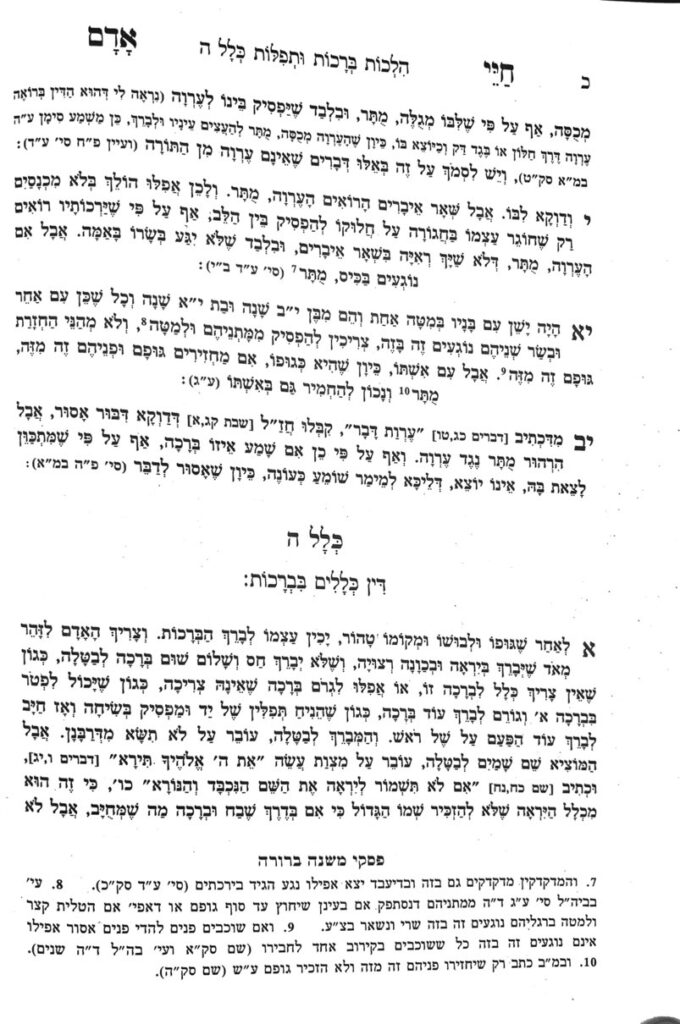We are beginning siman 12, which discusses hirhur in the presence of ervah.
The Chayei Adam writes that when one is in the presence of ervah, they are allowed to perform hirhur, to think in learning. Ervah is different than tzoah, where we learned that hirhur is assur in the presence of tzoah.
Although hirhur is muttar, the question becomes regarding hearing others recite words of torah or tefillah. Although the person listening is not speaking, hearing words from someone else is arguably a step greater than hirhur.
The Chayei Adam begins with a case of one who wishes to hear the words for the purpose of fulfilling an obligation. The Chayei Adam writes that if one wishes to fulfill an obligation by hearing another recite a bracha, known as the concept of shomeah k’oneh, they are not yotzei. The concept of shomeah k’oneh allows the person listening to be considered as though they recited the words themselves. If one is not allowed to speak, we cannot apply this concept to consider it as though they spoke, since it is assur for them to be speaking in that situation.
The language of the Chayei Adam implies that the problem is specifically when a person wishes to be yotzei through shomeah k’oneh. If they are not being yotzei, the implication is that it would be muttar. For example, if two people are talking, one who is facing ervah and one who is not, the one who is not facing ervah could arguably share words of torah with the one which is facing the ervah. The concept of shomeah k’oneh does not apply, as no one is trying to be yotzei. Similarly, one writing divrei torah or reading a sefer would seem to be able to do so in front of ervah.
Summary
In the presence of ervah, it is muttar to think in learning, and even to hear another person speak in learning. However, one cannot be yotzei any obligations which require shomeah k’oneh.



